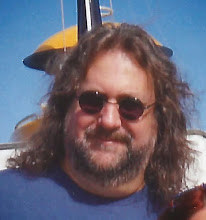 When I heard of the death of James Brown, late on Christmas Eve on the west coast, I immediately thought of junior high school. My years in junior high school coincided with the end of the decade of the 1960s, a time of great change in our country and in my life.
When I heard of the death of James Brown, late on Christmas Eve on the west coast, I immediately thought of junior high school. My years in junior high school coincided with the end of the decade of the 1960s, a time of great change in our country and in my life.The elementary school I had gone to was, I would guess, 95% white and 5% Hispanic, even though I lived in a poor neighborhood. The other elementary school in our community was I would guess 45% black 45% white and 10% Hispanic. The point being, junior high was my first one-on-one experience with black people and to be honest, some of it was plain frightening. The civil rights movement was in full swing and the black kids I ended up in junior high school with were feeling freedoms they had never felt before.
I was beaten up twice by black kids and threatened a lot more times than that just because I was white. But I took it in stride and there were a few black kids I considered friends in junior high school. It was one of these friends that one day let me in on something I knew nothing about. She carried a picture in her pants pocket every day. She said lots of her friends carried them too and they made them feel proud of who they were.
She carried a picture of James Brown.
She said that more than any national leader, more than any writer, more than any speaker, more than any family member, more than any other singer, Jame Brown had made her and her friends feel for the first time, proud of who they were. And in honor of that, they carried his picture with them.
James Brown didn't give elegant speeches, he didn't speak flowery sermons. He spoke plainly and directly and in doing so he reached them like others could not. Some times straight talk is all that is really needed. "Say it loud. I'm black and I'm proud! Say it loud. I'm black and I'm proud!"
I know in later years Brown did some things in his personal life that diminished his legacy, but none of them could wipe from the record the simple fact that James Brown taught his people how to be proud of who they were at a time when that was considered a radical concept.



No comments:
Post a Comment